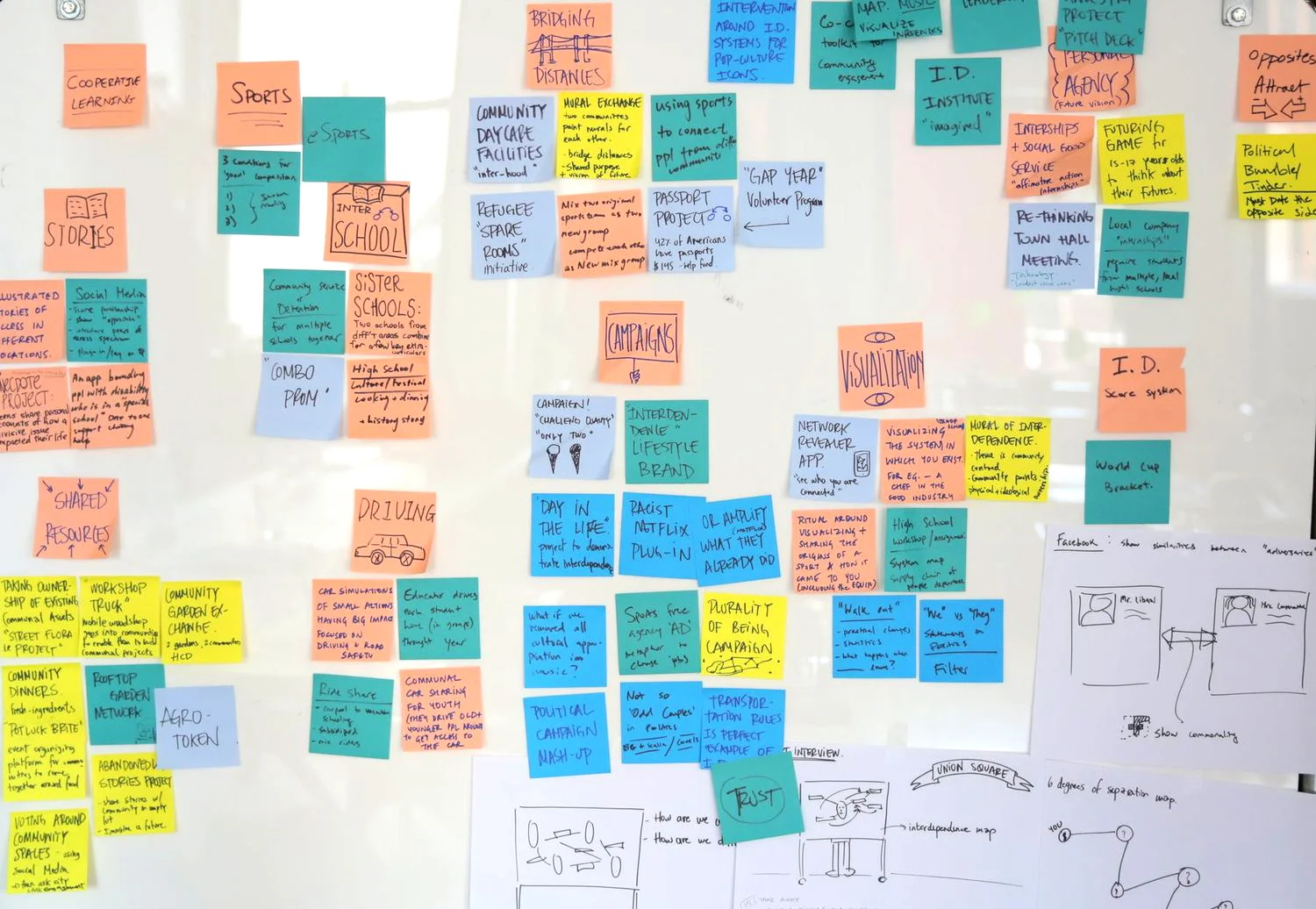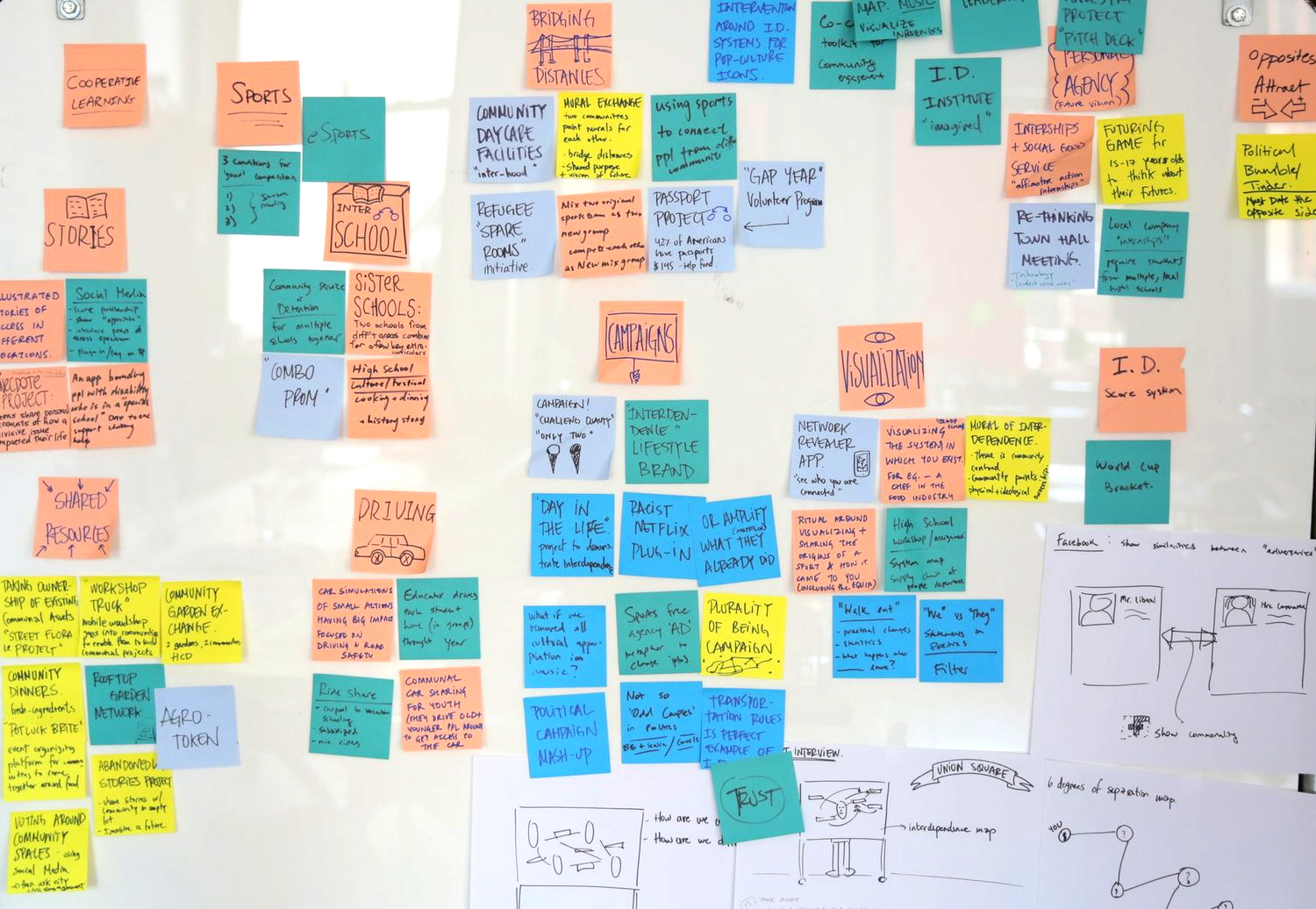THE interdependence PROJECT
A design exploration for Omidyar Network
Alexia was hired as one of 6 designers for a 5-week design research sprint investigating how to reveal, amplify, and foster healthy patterns of social interdependence through design interventions.
Design Research / Design for Social Impact
DESIGN COLLABORATORS
Smruti Adya / Andrew Schlesinger / Will Crum / Mayha Soltani / Qixuan Wang
How might we create a society where all citizens recognize and value our interdependence?
How might we enable citizens to develop the capacities needed to manage and flourish in diverse and complex communities?
How might we transmit the ethics of interdependence to encourage all citizens to act in the long-term interests of society?
In a world that is increasingly interconnected and interdependent, we are also experiencing growing polarization, racism, tribalism and fragmentation. These are worrying because recent history has taught us that the eventual fruits of these trends invariably lead to an increase in violence, oppression and the weakening of the fabric of civilization.
The challenge
“A significant portion of the population does not recognize how interdependent we are. From a young age learn that we are separate. How can we celebrate diversity but also celebrate our interconnectedness?”
Primary research
Since the context of the design brief was broad, Omidyar Network provided the team with a more defined target opportunity: emerging adults, 15-25 years old, who are not college bound.
With this constraint the team identified a few organizations in their networks and conducted interviews with young people at: GOSO (Getting Out and Staying Out), an organization out of Harlem that empowers young men to avoid further involvement with the criminal justice system, BK Rot, a community garden in Brooklyn that hires young people in their community to assist in the collection of compostables, and HIM, an LGBT youth center in NY.
Mapping exercises
As part of their interview process the team developed a set of mapping exercises along with question prompts, to facilitate the conversation around interconnectedness, community, comfort zones, and influences with interviewees. Through the primary research process the maps and questions were iterated upon and re-imagined as part of a public intervention in Union Sq.
Secondary research
Omidyar Network provided us with a host of white papers they co-authored as a jumping off point for our research. Additionally, we dove into a wide range of readings from Toni Morrison's evaluation of 'othering', to Kwame Anthony Appiah's philosophical interrogation of one's identity, to author George Orwell's assessment of nationalism, and contemporary works on pluralism. Our secondary research included academic papers, essays, articles, books and podcasts.
Subject matter experts
To complement our research we were given an unprecedented opportunity to engage in lively conversations with thought leaders—including design researchers, design strategists, anthropologists, writers — who shared their own observations and hopes as they encounter interdependence in their work.
Developed goals + design principles
In order to drive our design thinking forward we distilled our research into a set of 5 goals with accompanying design principles.
Proposals
The team proposed 15 design interventions presented to Omidyar Network along a continuum, from the proposals that intervene on the individual/micro scale, to those proposals that have the potential for macro/structural change.
For a peak into the 15 design interventions proposed through this project please flip through our published book on issuu.
Published Book
“I believe that people are interdependent,
fundamentally good, and capable.”















